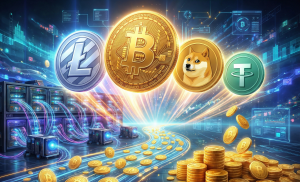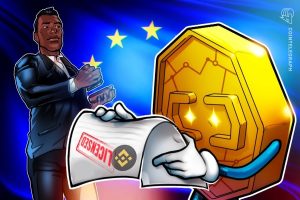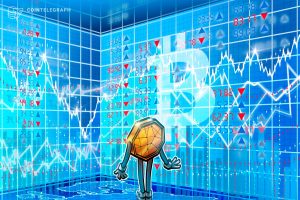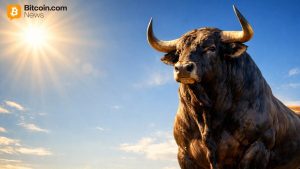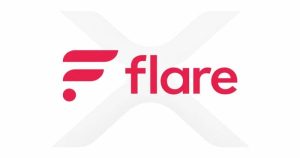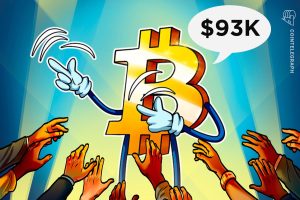VR GO: Improving the Effectiveness of Virtual Rehabilitation
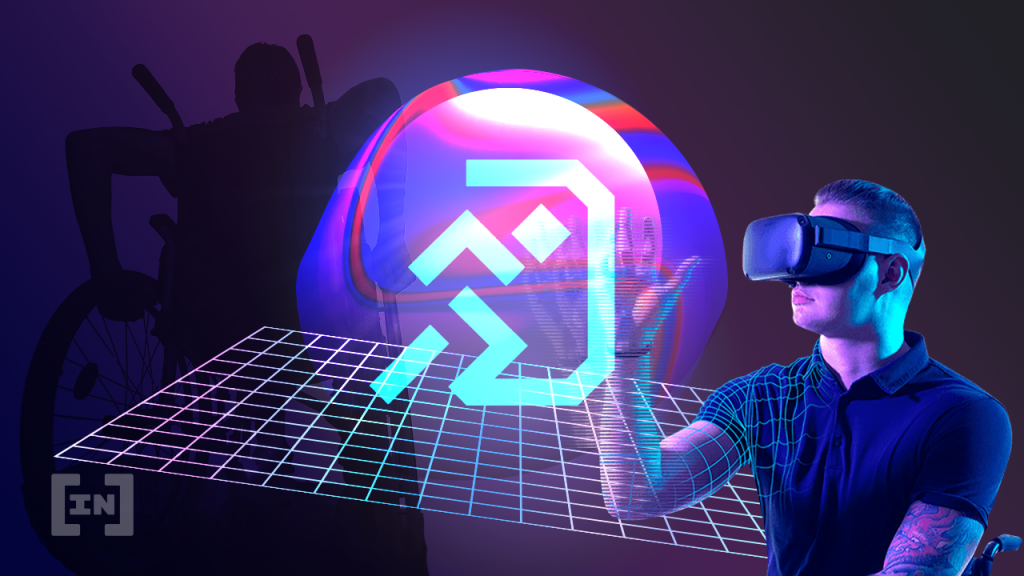
A unique collection of NFTs will help in the fight against the consequences of a stroke – how a resident of Tomsk has created a revolutionary project in the field of rehabilitative medicine with VR GO.
Oftentimes, ideas that can change the lives of many people come as a result of tragic events. As is the case with a developer from Tomsk, named Nikolai Muravyov.
The young man experienced an instance of severe trauma, which not only didn’t break his spirit but also helped him find a way to help many people who face mobility-related problems.
Nikolay Muravyov explained to our editorial staff how he managed to create a project aimed at improving rehabilitation after strokes.
How did the idea of VR GO come about?
“Life itself pushed me to bring this idea into reality. As you may have noticed, I’m in a wheelchair. In 2010, during a friend’s birthday celebration, I unsuccessfully took a trip on a slide with a sports ice sled and crashed my back into a group of trees. As a result – I gained a spinal fracture, three operations, and a long process of rehabilitation”, said Nikolai
“Due to the injury, I lost the ability to move my legs. The neurosurgeon advised me to use my imagination here. I had to imagine that I was moving my legs”, he continued.
“At this point, fans of Quentin Tarantino’s work should recall a fragment from ‘Kill Bill’, in which Uma Thurman tries to move his toes after a long coma, lying in the back seat of a car parked in a hospital parking lot.
These are the tasks that, following the advice of my doctors, I have been doing for a while now. Indeed, this is very energy-intensive. In addition, it’s not easy to remember the movements that you forgot. It was then that I had the idea of creating VR GO.”
What is the essence of your startup’s technology?
In VR GO, we use the capabilities of virtual reality to improve the effectiveness of rehabilitation for people who have suffered a stroke.
Our developments help to make mental representation more conscious and interesting, due to the gamified format and anatomically correct transmission of movement.
Patients will be able to control the movements of a digital version of themselves and, thanks to the high detail of each virtual world, take them for their own.
More than 60 people have tested the application and each of them left only positive feedback.
There have been cases when relatives of patients who were helped by our developments immediately offered a large sum of money for such tools.
To create an alternate, digital reality, we use the most modern VR headsets, as well as non-trivial solutions in the development of our own application.
We strive to make the technology as accessible as possible to everyone.
Who is helping you with this project?
“I could not have done this alone. My friend and experienced businessman Maxim Zhdanov, as well as cyberneticist Herman Schneider, whom we met at one of the accelerator events, help me in my work.
I assembled the project’s team back in 2017 – after attending a virtual reality hackathon. We also have a staff of programmers who are responsible for the technical part of the development.”
What are the results of VR GO at the moment and how do you see the future of the project?
“We have proven the effectiveness of our project – this is probably the main achievement. In addition, we have acquired connections and even received the support of foreign authorities.
For example, we were offered assistance with the release of the project to the European market. All these details of the puzzle help to promote the project.
We’re also planning to launch a mobile application.
At this stage, VR GO users will be able to work even through cardboard cutouts– ordinary Google card glasses in which you can install a smartphone. All you need is a modern phone and an inexpensive cardboard cutout costing between $10-20.”
How did your fascination with Star Wars begin?
“My passion for Star Wars goes back a long way. My fascination was catalyzed at the moment when I realized that my disability pension was not enough for living.
To earn money, I started making bespoke helmets and costumes from fantasy films. By the way, I’m not limited to Star Wars. There are also works inspired by other films in my collection, for example, Iron Man.
Today, my hobby has taken on a digital format and I recently entered the NFT market. My works are now presented on the OpenSea marketplace.
All income from the sale of NFTs goes to fund the project. Those who wish to help us in creating tools for the rehabilitation of people with motor problems – check out my OpenSea page. “
How does the process move from idea to implementation?
“Creating helmets is an extremely painstaking job in which every detail is important. First, I work out the idea, and then I look for ways to implement it.
In the course of the work, I can refine the idea or change it until I get something really cool. An important place in the process is the choice of design.
Some jobs can take from six months to a year and a half, but it’s worth it. Each helmet is unique. There is no second one exactly like it in the world.
Helmet buyers get an exclusive opportunity to interact with the Star Wars universe and become a unique part of it. And so, the idea of the STAR MASTER TROOPER project was born.”
Do you ever receive unusual orders? If so, what was the most unusual object you created?
“One of the most interesting works has been the R2–D2 robot made of metal. He moves his head and speaks in his own language ‘pilik pili piuu’.
We made him for the teaching staff at the children’s technopark known as “Quantorium”, in which I actually worked as a laboratory assistant teacher.
Our R2-D2 was at the Street Vision Street Art Festival. After that, we put the robot into the hands of the person who financed the work.”
Tell us about the creation of STAR MASTER TROOPER helmets. What is the main idea behind the collection?
“STAR MASTER TROOPER is partly a fantasy about how stormtroopers might look. At the same time, in the NFT collection, I also paid tribute to the classic look of the heroes.
By the way, the first helmet in digital and physical form went to its buyer from Australia before the start of the sales.”
What are NFTs and how do they differ from the huge number of images that are uploaded to OpenSea?
“The format of non-fungible tokens helps to confirm the ownership of a unique image through the fixation of information in the blockchain.
At the same time, the NFT market offers some of the simplest conditions for the sale and purchase of digital art.
All the images that formed the basis of my tokens are copyrighted; they are presented in a single copy. By the way, all the NFTs are not just graphics, but real physical helmets captured on video. This approach allows the buyer to purchase both the digital and physical forms of the helmet.”
Do you have plans for expansion in the NFT market?
“There are certainly plans to create new collections. The NFT market is continuing to grow. Analysts predict that by 2025, the industry for NFTs will reach $80B.
Market expansion is also facilitated by the development of many large companies, including Meta (Facebook).
I plan to develop my NFT initiative in order to use it to scale the VR GO project, through which we will help people who have lost the ability to move.”
What would you say to people who have lost hope for the joy of movement?
“I would say from personal experience – the loss of hope is a path to nowhere.
I’ll give you an example. If I had relaxed in the hospital and not started thinking about alternative ways to improve my condition, there would not have been a VR GO project, which has become for many people the hope for a happy future.”
Is there an opportunity to contact you to try out your technology or join in your creativity?
“Sure. I’m always open to communication. You can contact me, for example, via Twitter or Instagram. I like to communicate with people with whom we are similar energetically.”
Disclaimer
All the information contained on our website is published in good faith and for general information purposes only. Any action the reader takes upon the information found on our website is strictly at their own risk.




